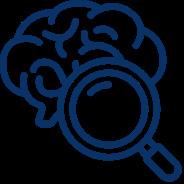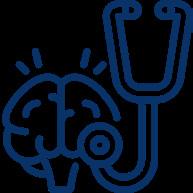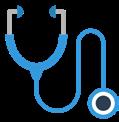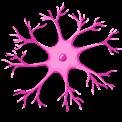

Access videos and resources from this guidebook digitally by visiting kuadrc.org/pcpguidebook.
CME training modules can be found by visiting kuadrc.org/davos-cme or by scanning the link below.

Updated: June 2025




Access videos and resources from this guidebook digitally by visiting kuadrc.org/pcpguidebook.
CME training modules can be found by visiting kuadrc.org/davos-cme or by scanning the link below.

Updated: June 2025

Empower PCPs to take charge in identifying and managing cognitive decline, meeting the demands of a growing health crisis with innovative collaborative care models bridging primary care and specialists.



Detect cognitive changes early and define the stage (SCI, MCI, or dementia).
Diagnose the cause (e.g., Alzheimer’s, vascular dementia) and treat effectively.
Leverage new tools in O2 to streamline care, improve efficiency, and meet best practices.
This 90-minute video-based program will equip primary care providers with the knowledge, tools, and resources to detect, diagnose, and treat cognitive impairment while leveraging new diagnostic advances and collaborative care pathways.
1. In the first module, Dr. Townley will provide guidance on detecting, working up, diagnosing, and treating cognitive impairment.
2. Next, Dr. Burns will share insights on using blood biomarkers to increase diagnostic confidence.
3.
Finally, Dr. Woodward will demonstrate how to use EMR tools and offer guidance on collaborating with the KU Memory Clinic.


Detecting, Diagnosing, and Treating Cognitive Impairment
50 minutes presented by Dr. Townley
• Improving Early Detection
• Conducting a Cognitive Assessment Visit
• Recommended Cognitive Screening Tools
• Staging Cognitive Impairment
• Cognitive Impairment Workup
• Defining the Clinical Syndrome
• Diagnostic Disclosure Visit
• Treatment Options
• Behavioral Management
• Lifestyle Recommendations – LEAP! Program
• Common Challenges in Dementia Care
Introduction to Blood Biomarkers for Primary Care
15 minutes presented by Dr. Burns
• When to order Alzheimer’s blood biomarkers
• How to interpret Alzheimer’s blood biomarker results
• How blood biomarkers help patients
• Communicating results to patients
• Limitations of blood biomarkers
• Is Anti-Amyloid Therapy an option for my patient?
Cognitive Care and Collaborative Pathways at KU
20 minutes presented by Dr. Woodward
• Using the “Primary Care Cognitive Assessment Visit”
• Streamlined EMR tools for efficient and accurate cognitive care
• Referral Options at KU
* Neuropsychology
* Memory Clinic
◊ E-Consult program Complex Diagnosis and Treatment
◊ Anti-Amyloid Treatment Clinic
◊ Education/Brain Health Information

workup, diagnosis, and treatment
1. Early Detection and Cognitive Screening
• When to Screen:
* Patients with self-reported or care partner-reported cognitive/behavioral changes.
• Screening Tools:
* Preferred Tools: Montreal Cognitive Assessment (MoCA), Saint Louis University Mental Status (SLUMS), Short Test of Mental Status (STMS).
* Avoid: Mini-Mental State Examination (MMSE) due to poor sensitivity.
• Next Steps for Abnormal Results:
* Schedule a Cognitive Assessment Visit.
2. Overview of Cognitive Assessment Visit
• Obtain structured history from both patient and care partner.
• Evaluate functional changes, cognitive domains (memory, executive, language, visuospatial), and motor symptoms.
• Use templates to streamline evaluation, documentation, and workup.
3. Workup for Cognitive Impairment
• Basic Testing: TSH, Vitamin B12, brain MRI without contrast.
• Advanced Testing: Biomarkers (e.g., p-tau217), neuropsychological testing, sleep studies.
4. Staging of Cognitive Impairment
• Stages:
* Subjective Cognitive Impairment: Normal testing but cognitive concerns.
* Mild Cognitive Impairment (MCI): Abnormal testing but independent ADLs.
* Dementia: Abnormal testing with impaired ADLs.
• ADL Examples:
* Instrumental ADLs: Shopping, medication management, finances, driving.
* Basic ADLs: Hygiene, bathing, dressing.

5. Delivering a Diagnosis
• Use patient-centered communication:
* Review test results collaboratively.
* Empathize and provide a clear diagnosis.
* Include care partners in discussions.
• Emphasize a plan: treatment, lifestyle changes, follow up, research opportunities.
6. Medication Options
• Medications:
* Cholinesterase Inhibitors: Donepezil (preferred), Galantamine Rivastigmine.
* Memantine: Add-on therapy for moderate-to-severe Alzheimer’s dementia.
* Anti-Amyloid Therapy: Consider for biomarker-confirmed early AD cases.
7. Behavioral Symptom Management
• Address agitation, depression, anxiety, and apathy with tailored non-pharmacologic strategies.
• Medications:
* Use SSRIs for anxiety/depression; avoid anticholinergics.
* Low dose atypical antipsychotics in more severe cases.
8. Lifestyle Recommendations – LEAP! Program and Resources
• Exercise: 150 minutes/week, aerobic and resistance.
• Diet: MIND/Mediterranean diet.
• Sleep: Treat sleep disorders like OSA and improve sleep hygiene.
• Brain Health Education: Sign up for MyAlliance for Brain Health; LEAP! Programs.

1. When to Order Alzheimer’s Blood Biomarkers
• Target Patients: Older adults (55+) with clinically significant cognitive changes supported by family input and cognitive testing.
• Purpose: Enhance diagnostic accuracy and guide treatment, including eligibility for new therapies.
• Not Recommended For: Asymptomatic individuals or predicting future risk or prevention strategies.
2. How to Interpret Alzheimer’s Blood Biomarker Results
• Positive / Elevated Result: Suggests presence of amyloid in the brain, supporting an Alzheimer’s diagnosis if paired with cognitive decline. Consider anti-amyloid therapy and develop a management plan.
• Negative / Non-Elevated Result: Amyloid in the brain is unlikely; continue to explore other causes of cognitive decline (e.g., vascular disease, Lewy body disease, sleep apnea, depression).
• Indeterminate Result: Result near the cut-off point. Consider further tests (e.g., amyloid PET scan, CSF analysis).
• Key Considerations:
* 25% of older adults without cognitive issues may have elevated amyloid.
* False positives and negatives are possible—clinical context is critical.
3. How Blood Biomarkers Can Help Patients
• Benefits:
* Early and more confident diagnosis.
* Supports differential diagnosis (e.g., Alzheimer’s vs. other dementias).
* Opens the door for disease-modifying therapies.
• Clinical Impact:
* Reduces diagnostic uncertainty.
* Empowers patients and families with information for decision-making and care planning.

4. Communicating Results of Blood Biomarkers
• Explain Results:
* Positive / Elevated: Amyloid is likely present in the brain; supports Alzheimer’s changes.
* Negative: Amyloid likely not accumulated in the brain; consider other causes.
* Indeterminate: Inconclusive; requires follow-up testing or observation.
• Emphasize Context:
* Integrate results with clinical history and symptoms.
• Provide Resources:
* ADRC education resources like MyAlliance for Brain Health, support groups, and LEAP!.
5. Limitations of Blood Biomarkers
• Not a Standalone Tool: Must be used in the context of clinical history and documented cognitive changes.
• Risk of Inaccuracies: False positives/ negatives possible, especially near cut-off points. Consider comorbidities like kidney disease that may affect results.
• Early-Stage Challenges: May miss amyloid in early stages—negative results don’t rule out future Alzheimer’s.
6. Is Anti-Amyloid Therapy an Option for My Patient?
• Eligible Patients: MCI or mild dementia with confirmed presence of amyloid in the brain.
• Therapies: FDA-approved monoclonal antibodies (Leqembi, Kisunla); reduce cognitive decline by ~30% over 18 months. Require monthly/bi-monthly infusions and MRI monitoring.
• Consider Referring to Anti-Amyloid Treatment Clinic:
* Clinic will assess eligibility (amyloid PET, CSF analysis, ApoE genotyping).
* Discuss risks and benefits, initiate treatment, and monitor safety.

Part 1: Cognitive Assessment Visit
1. Introduction to the Cognitive Assessment Visit SmartSet
• Purpose: EMR tools to support, efficient cognitive assessment, workup, and care.
• Guides PCPs through the visit and ensures best practices.
2. Step-by-Step Walkthrough of the SmartSet
• History Collection:
* Easy-to-use interface with click-buttons and areas for detailed notes.
* Real-time documentation to generate a comprehensive clinical note.
• Cognitive Testing:
* Recommended beside tests:
◊ Short Test of Mental Status (STMS).
◊ AD8 Questionnaire.
* How to interpret results in the context of the patient’s history.
• Order Sets:
* Tier 1 (basic tests for all patients) vs. optional advanced testing.
* Ensures thorough evaluation while clarifying when additional tests are appropriate.
• Medications:
* Standard and advanced treatments with recommendations for dosing and usage.
* Tips for medication choices tailored to patient needs.
3. Billing and Documentation
• Compliance with Medicare billing code 99483 (40-minute visit, 3.84 RVUs).
• Financial and professional incentives for using the tools correctly.
4. Summary of Cognitive Assessment Visit
• Seamlessly integrates history, testing, orders, meds, diagnosis, and billing.
• Tools simplify complex care, build patient confidence, and optimize patient outcomes and clinician efficiency.

Part 2: Collaborative Care Pathways: Referral Options at KU
Referral Options:
Memory Care Clinic Pathways
1 E-Consults:
◊ Purpose: Rapid, specialist-guided advice to support PCPs.
◊ How to refer: “e-Consult to Memory Care Clinic”.
◊ Requirements:
° Complete a Primary Care “Cognitive Assessment Visit.
° Evidence of abnormal cognitive testing (e.g., Mini-Cog, MoCA,STMS, SLUMS, neuropsychological testing).
° Neuroimaging completed and images available in O2 for viewing (MRI preferred; CT acceptable if MRI is contraindicated).
2 Complex Diagnosis and Treatment:
◊ Purpose: Advanced diagnostic and care services for complex cases.
◊ How to refer: “Amb Referral to Neurology” --> reason: memory clinic.
◊ Requirements:
° >6 months of cognitive decline.
° Evidence of abnormal cognitive testing (e.g., Mini-Cog, MoCA, STMS, SLUMS, neuropsychological testing).
° Neuroimaging completed and images available in O2 for viewing (MRI preferred; CT acceptable if MRI is contraindicated).
3 Anti-Amyloid Treatment Clinic (AAT Clinic): Evaluation to determine eligibility, initiation and monitoring of anti-amyloid therapies.
◊ How to refer: “Amb Referral to Neurology --> reason: Memory Clinic to assess for new therapies / anti-amyloid / leqembi / kisunla.
◊ Requirements:
° MCI or mild dementia (e.g., MoCA >14, MMSE >20, or STMS >20).
° Brain MRI completed within the last 12 months.
° Elevated / Positive Alzheimer’s disease biomarker (e.g., blood pTau217).
Neuropsychology: Comprehensive cognitive testing to refine or confirm diagnoses.
* Purpose: For those requiring Social Work support.
* How to refer: “Amb Referral to Social Work”.
* Purpose: For anyone ~ 50 years and older (including cognitively healthy) who has an interest in learning more about brain health, lifestyle changes to prevent or slow decline, and research opportunities.
* How to refer: REF242 - Brain Health Education & Research Platform - MyAlliance for Brain Health
◊ Referrals will be enrolled in the MyAlliance for Brain Health newsletter that provides invitations and links to ADRC resources, including lifestyle education (LEAP! Program) and a variety of opportunities to participate in research.

Closing and Next Steps: As you complete the KU Primary Care Brain Health Program, take time to reflect on how you can integrate these tools into your daily practice. The strategies, workflows, and resources presented in this program are designed to streamline cognitive care, enhance patient outcomes, and increase your confidence in managing Alzheimer’s disease and related dementias.
How to Integrate This Knowledge:
• Leverage the Cognitive Assessment Visit SmartSet – Use this streamlined O2 tool to conduct efficient assessments, ensure accurate documentation, and meet best-practice standards.
• Apply Diagnostic and Treatment Strategies – Build confidence in detecting cognitive changes, defining impairment stages, diagnosing causes, and creating treatment plans.
• Refer and Collaborate – Use KU resources like E-Consults, the Memory Clinic, and the AAT Clinic to support complex cases while managing the majority of care within primary care.
Stay Connected: To continue building your skills and confidence in managing cognitive care:
• Revisit the Tools in O2 – Stay familiar with the SmartSet and referral order sets to maximize efficiency.
• Collaborate with KU Resources – Use E-Consults or contact the Memory Clinic when additional guidance is needed.
• Engage in Additional Training – Attend live Q&A sessions, advanced workshops, and future updates to remain at the forefront of cognitive care.
Your Role is Critical: The future of Alzheimer’s care depends on expanding access to timely diagnosis and treatment. Your ability to detect, diagnose, and manage cognitive impairment early and effectively has a profound impact on your patients’ lives. Thank you for your dedication to advancing brain health care. Let’s continue working together to meet this challenge and improve lives.
• Neuropsychology --> “Amb Referral to Neuropsychology”.
* Comprehensive cognitive testing to refine or confirm diagnoses.
• Memory Care Clinic --> “Amb Referral to Neurology”.
* Complex Diagnosis & Treatment --> Note in order: “Memory Clinic”.
* Anti-Amyloid Treatment Clinic (AAT Clinic) --> Note in order: “Memory Clinic to assess for new therapies”.
* E-Consults --> “E-Consult to Memory Care Clinic”.
• Brain Health Education & Research --> “Amb Referral Brain Health Education & Research Platform - MyAlliance for Brain Health”.
* Newsletter, webinars, lifestyle programs, and research opportunities.
• Caregiver & Patient Support --> “Amb Referral to Social Work”.



Anyone interested in brain health – Lifestyle tips, exercise, and diet recommendations.
Patients with a new cognitive diagnosis – Education & caregiver resources.
Patients interested in research – Alzheimer’s prevention & treatment studies.
How to Refer: Use the Ambulatory Referral to our Brain Health Education & Research Platform
• Patients will be enrolled in MyAlliance for Brain Health, giving them access to education, lifestyle programs, and research opportunities.
• No special requirements—free and easy for patients.
What Patients Get:




Weekly Brain Health Newsletter – Tips on exercise, diet, and cognition.
Webinars & Education – Expert-led events on brain health & caregiving.
Lifestyle Support (LEAP!) – Programs like the Brain Health Bootcamp & Mediterranean Diet Course.
Research Opportunities – Information on prevention & treatment studies.
Why Refer?: Our comprehensive MyAlliance for Brain Health platform connects patients with brain health education and research opportunities that are most relevant to them – while freeing up your time for other aspects of their care.

This Quick Start Reference Guide is designed to help you efficiently navigate cognitive care within primary care settings using the Cognitive Assessment Visit SmartSet, structured workups, and streamlined referral pathways in O2.

Recommended Tools:
• Short Test of Mental Status (STMS).
• Montreal Cognitive Assessment (MoCA).
• Saint Louis University Mental Status (SLUMS).


Avoid: Mini-Mental State Examination (MMSE) due to poor sensitivity.
Next Steps: If abnormal results, schedule a Cognitive Assessment Visit.

Basic Tests (Tier 1 – Recommended for All Patients):
• Short Test of Mental Status (STMS)
• Labs: TSH, Vitamin B12, lipid panel, CBC, complete metabolic panel.
• Imaging: MRI brain without contrast (CT if contraindicated).

Advanced Tests (Optional Based on Clinical Context):
• Alzheimer’s blood biomarkers (e.g., ptau217).
• Other Considerations:
* Amyloid PET scan or lumbar puncture if biomarker testing is inconclusive.
* Sleep studies for suspected sleep apnea or REM Behavior Disorder (RBD).
* Neuropsychological testing for complex cases or borderline findings.

Neuropsychology (Amb Referral to Neuropsychology)
• For comprehensive cognitive testing when screening results are unclear.
• Ideal for patients with borderline cognitive test results or complex diagnostic concerns.


Memory Clinic (Amb Referral to Neurology Memory Clinic)
• Complex Diagnosis & Treatment: For patients with >6 months of cognitive decline, abnormal cognitive testing, and neuroimaging.
• Anti-Amyloid Treatment Clinic (AAT Clinic): For patients with MCI or mild dementia who may be eligible for disease-modifying therapies (Leqembi, Kisunla).

E-Consults (E-Consult to Memory Care Clinic)
• For quick specialist-guided advice on abnormal cognitive tests or treatment options.
• Requires a Cognitive Assessment Visit and neuroimaging.




Cognitive Assessment Visit SmartSet – Streamlines history-taking, testing, and orders in O2.
KU Memory Clinic – For advanced diagnostic and care support.
E-Consult Service – Quick, specialist-guided advice available through O2.
KU ADRC Resources (Amb Referral Brain Health Education & Research Platform - MyAlliance for Brain Health)
• MyAlliance for Brain Health:
• Weekly brain health newsletter with lifestyle tips, webinars, and caregiver education.
• Access to brain health education, lifestyle programming, and research opportunities.
• LEAP! Program:
• Brain Health Bootcamp (6 weeks): Strategies for optimizing brain health.
• Mediterranean Diet Course (4 weeks): Practical guidance on brainhealthy nutrition.

